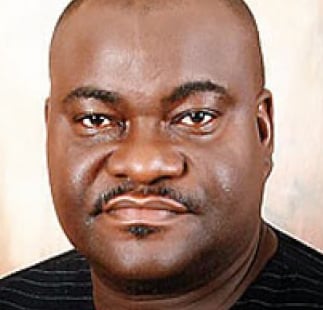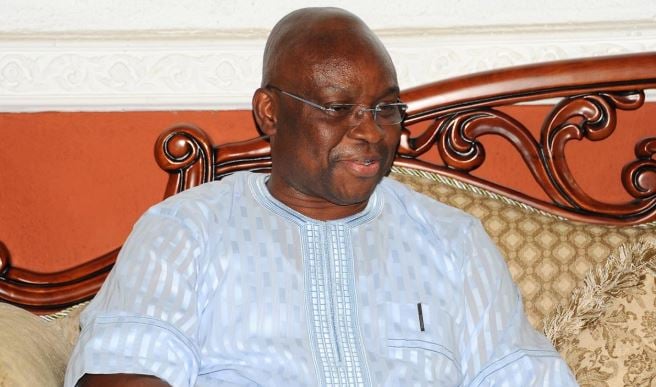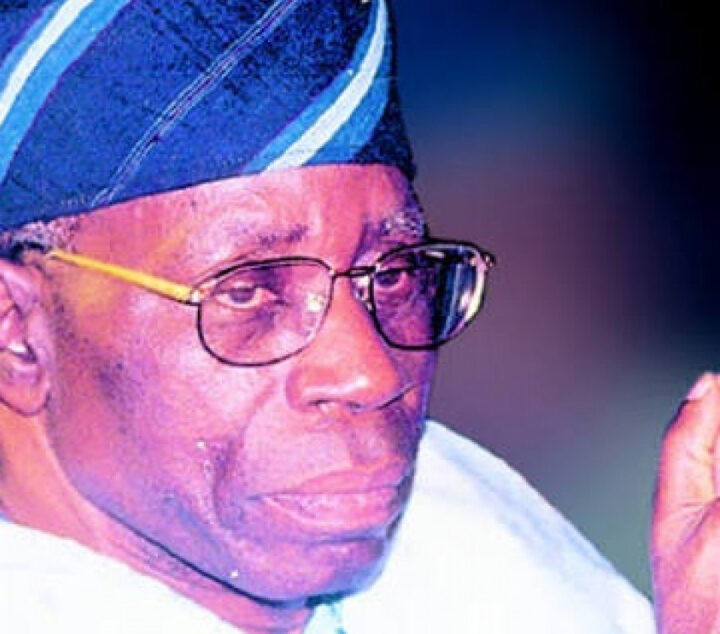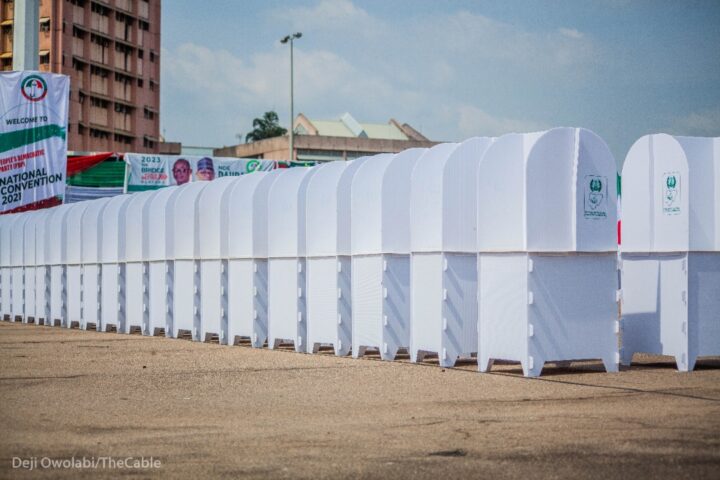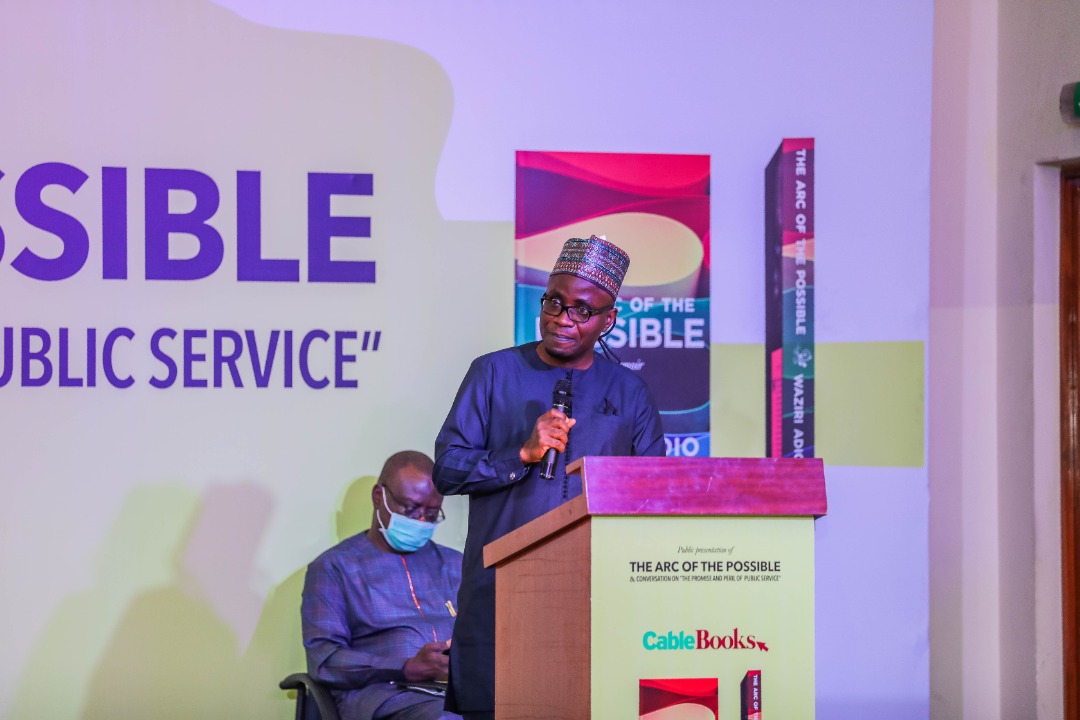I called up a colleague in one of the national newspapers to make an editorial suggestion to him in August 2017. Ayodele Peter Fayose who was governor of Ekiti state at the time was attending the convocation ceremony of one of his children, at the Covenant University, Otta, Ogun state. Oluwarogbayimika Fayose graduated with a second class upper degree, and his delighted father could be seen grinning from ear to ear, in photographs which were hoisted on the internet, realtime. You could feel Oshokomole’s (that is Fayose’s popular alias) sense of accomplishment, as a parent. The younger Fayose was the third of his siblings to graduate from the same alma mata. A fourth member of the family graduated from another university in Nigeria.
I had mooted the idea to that colleague, that a good editorial commentary can be developed around the matter. If a sitting governor, with all the resources and privileges at his disposal, could willingly dispatch his child to a Nigerian university, where assistant directors in some ministries, departments, and agencies, (MDAs) were sending their wards to universities in Canada, the United Kingdom, (UK) and the United States of America (USA), there were tangible takeaways from that gesture. Crucially, despite the verified challenges of our educational system, quality instruction is still obtainable in our institutions, after all.
The nation’s anti-graft agencies, from the Economic and Financial Crimes Commission, (EFCC), to the Independent Corrupt Practices Commission, (ICPC), to the Code of Conduct Bureau, (CCB) are characteristically busiest with reports and case files of civil servants, in the main. This is not excusing thieving public officers across board who are usually assisted by the civil servants, to cook the books, by the way. Such fiscal hauls are invested in physical assets (mainly houses and apartments sprinkled across major Nigerian cities and foreign capitals); raw cash in various foreign denominations, stored in secret vaults and stowed away in all manner of inventive storages even multimillion-dollar trinkets are routine seizures from greedy civil and public servants.
And what better way to authenticate the reality of subsisting quality in our educational system, than the continued hunt for, and enlistment of homegrown medical professionals, into the medical systems of foreign countries. The United Arab Emirates (UAE), Saudi Arabia, Canada, the UK, and the US, are in a continuing quest for Nigerian medical professionals, to make assurance doubly sure. Medical doctors and pharmacists were a priority, once upon a time. Nurses have joined the list of coveted professionals now, even as there has been a corresponding rise in the enrolment figures for the nursing programme in Nigerian universities.
Advertisement
And talking about the accentuating figures of medical personnel being lured away to other lands, didn’t Nigerian intelligence operatives last August, storm the Sheraton Hotel in Abuja, to disrupt recruitment interviews being conducted by a human resource agency, reportedly on behalf of its client, Saudi Arabia? This was at the height of a faceoff between doctors and the federal government, over inadequate working conditions, notably facilities and emoluments. The first phase of that recruitment exercise for medical doctors, by the way, was conducted in Lagos, days before the Abuja segment. This underscored the burning desire of the Saudi government, to speedily take on their projected new employees. And this was happening at a time Chris Ngige, Nigeria’s minister of labour and employment, affirmed on national television, that the country had an overflow of physicians, and would not be hurt, by the depletion of its ranks, by the outward drift of its medics. This, however, contrasted with the Gestapo-style swoop of the secret police, on Sheraton in Abuja, to halt emigration proceedings of Nigerian doctors.
The colleague I gave that editorial hint, by the way, would later plead with me about his incapacitation in the circumstances. He said he would have been thoroughly misconstrued if he had proposed such a topic at the editorial conference of his organisation. “They will think I’ve been paid if I had broached it at our editorial meeting. The chief executive officer is perpetually breathing down my neck and someone will ask: What is our special interest in Fayose? They won’t see the merit and genuineness in the subject. The newsroom today is not what you left behind, over two decades ago”. I was aghast.
On Sunday, December 19, 2021, Andrew Ngige, the second son of the older Ngige and his third child, graduated from the school of medicine at the University of Abuja. Before him, his elder brother, Ralph Chunny Ngige, graduated in September 2020, from the college of medicine, Chukwuemeka Odimegwu Ojukwu University, Amaku, Awka, Anambra state. Last July, Ngige’s daughter Marilyn, graduated from the college of medicine, University of Lagos. The Ngige family as it stands, is fully and roundly a family of medical doctors, since the labour minister himself, and his wife, Evelyn, a permanent secretary in the federal ministry of industry, trade, and investment are both medics. And as a delighted Ngige noted, his family is one of wholly “Made in Nigeria” medical doctors.
Advertisement
I have known Onwa, yes, that is the dominant traditional title by which Ngige is known and revered by his people and friends, across the broad spectrum, even before the formal berth of democratic governance in 1999. He was a founding zonal officer of the Peoples’ Democratic Party, (PDP), in the south-east. In the course of the cross-country tours and legwork of Olusegun Obasanjo in his quest for the presidential ticket of the PDP, Enugu was a regular hub. Ngige was almost ever-present, alongside the Arthur Ezes, JSP Nwokolos, Dubem Onyias and other leaders of the blossoming party, on the Anambra-Enugu stretch, at the time. He indeed vied for the PDP ticket to represent Anambra central, in the 1999 senate but lost.
He would later assume national, even global recognition on account of the controversies which attended the early days of his term in office as governor of Anambra state. Inaugurated on May 29, 2003, there was an attempt to remove him from office by his “political godfathers”, Andy and Chris Uba, less than two months after his assumption of duty. The drama which attended the plot was a phenomenal combination of strong-arm tactics by both the state legislature and the nation’s security officials, led by Raphael Ige, an assistant inspector general of police (IGP), at the time. There was indeed a kidnap saga that kept the chief executive of the state incommunicado for 12 hours that July 10, 2003. Ngige fought bravely in the law courts, even physically, to resist every attempt to bully and harangue him.
As parents of children who attended the same secondary school in Abuja, many years ago, Ngige and I saw much more frequently, especially during visiting days, open days, meetings of the parents-teachers association (PTA), and so on. James Bawa Magaji (former deputy governor of Kaduna state); Nkechi Nwaorgu, Ita Enang, (both senators at the time), Stephen Ocheni (former minister of state for labour and employment); Orji Ogbonnaya Orji (executive secretary of the Nigerian Extractive Industries Transparency Initiative, (NEITI); Tivlumun Nyitse (chief of staff to the Benue state governor) and the late Onukaba Adinoyi-Ojo (former media adviser to erstwhile vice president Atiku Abubakar), were also regular callers at the school’s programmes.
In 2011, Ngige finally achieved his longstanding dream of representing his people in the Anambra central senatorial zone in Nigeria’s parliament on the platform of the Action Congress of Nigeria (ACN). The party was the principal component of political parties which coalesced in 2013, to constitute the present day All Progressives Congress (APC) to challenge for the presidency in 2015. Ngige lost the opportunity to return to the senate but was compensated following his appointment as minister representing Anambra in the federal executive council, (FEC), constituted by President Muhammadu Buhari in November 2015. He was reappointed in August 2019, months after Buhari’s reelection, making history as one of the longest-serving ministers in post-democratic Nigerian history.
Advertisement
I remember asking Ngige on a visit to his Asokoro, Abuja home sometime in 2019: “Onwa, where are our people we used to attend their visiting days together those days?” “They are all in school, thanks for checking up, my brother Tunde,” he replied. “They must be out there in the States and in Europe,” I followed up. “No o,” he answered. “They are all here. There is nothing wrong with our educational system. I was trained here, you were trained here and you are one of our topmost journalists. My wife was trained here. So why wouldn’t they school here? They will decide where they will undergo their specialist programmes, but let them get that necessary grounding here. Many countries are envious of the human resource quality we contribute to the world here, but we delight in running down what we have”.
The examples of Fayose and Ngige are most apposite. By Nigerian standards, both men are very privileged individuals, they are”big men,” as we would say in popular parlance. Fayose was two-time governor of Ekiti state, having served between 2003 and 2007, before his return, years later. In the case of Ngige, he has held every notable elective and appointive office in Nigeria, except the presidency. He has been governor, senator, and now a second-term minister. Given the humongous resources available to public officers, where the average civil servants can sustain their children and wards in foreign institutions, and procure pricey apartments in their names, it is unlikely that Fayose and Ngige are resource-constrained.
In many instances indeed, the quest for education in environments with the relative stability of the academic calendar for the children of the nouveau riche is but a veiled device for self-aggrandizement or bragging rights. Certain individuals cherish that vainglorious announcement across the shopping mall or in the course of a telephone conversation, that “my son is in Harvard, and his sister is in Massachusetts”. It wouldn’t matter if some spoilt brats in this bracket, are more of tourists and holidaymakers in their country of domicile, than serious students. As a dispassionate public engager, my summation is that Fayose and Ngige (who are at opposite extremes of the political gulf) have shown faith in our much-maligned educational system, which nonetheless, has continued to produce internationally competitive graduates. Both men by their preferences, are potential inspirations for politically privileged and affluent Nigerians, to explore and utilise the subsisting quality, inherent in our educational system.
This is no blanket cheque, clean bill of health for our educational system, which is light years away from the impeccable standards of several decades ago. Those were the days when Nigeria was the pilgrimage grounds for the global “Who is Who,” in academia, arts and culture. The newest Nobel laureate for literature, Tanzanian-born Abdulrasak Gurnah, for instance, was next door to us in Bayero University, Kano (BUK). He taught literature there from 1980 to 1983, at a period when one of the principal benefactors of the career of the Kenyan literary icon, Ngugi wa Thiong’o, David John Cook, was grooming a new generation of writers, at the University of Ilorin. Professors and lecturers in our universities continue to embark on industrial actions because the provision and standardisation of basic instructional materials like adequate classrooms and lecture theatres; properly stocked and up-to-date laboratories and libraries; appropriate remuneration for staff, and grants for training and research, are either wilfully unavailable or ridiculously minuscule. In some instances, our children have entered universities as youths and graduated as men and women, owing to recurring, indiscriminate closures of the institutions.
Advertisement
The country’s international profile is indeed burnished by the investment of confidence in the various strands of our sociopolitical life, by its own nationals. While Fayose and Ngige and similar Nigerians have continued to show faith in institutions in our country, we must also see such conviction by our officials, in our healthcare system, for instance. All the years he was president, and despite managing a publicly known diabetic condition, Obasanjo’s medical checkups were conducted either in the statehouse clinic, or the National Hospital, Abuja, by indigenous medical professionals. This is contrary to extant practice under Buhari, whose exact medical condition is a mystery, and who has virtually treated every headache or migraine, in Europe, over the past seven years. Yet on an annual basis, robust budgets are approved for the provision of facilities and medicaments, in the statehouse clinic. The minister for humanitarian affairs, disaster management and social development, Sadiya Umar Farouq, was reported to be expectant a few weeks ago and desired to have her baby in the US. Nothing can be as much a confidence killer, as when those who should lead by example, fail and falter unashamedly at the starting blocks.
Olusunle, PhD, poet, journalist, scholar, and author, is a member of the Nigerian Guild of Editors, (NGE)
Advertisement
Views expressed by contributors are strictly personal and not of TheCable.
Add a comment
